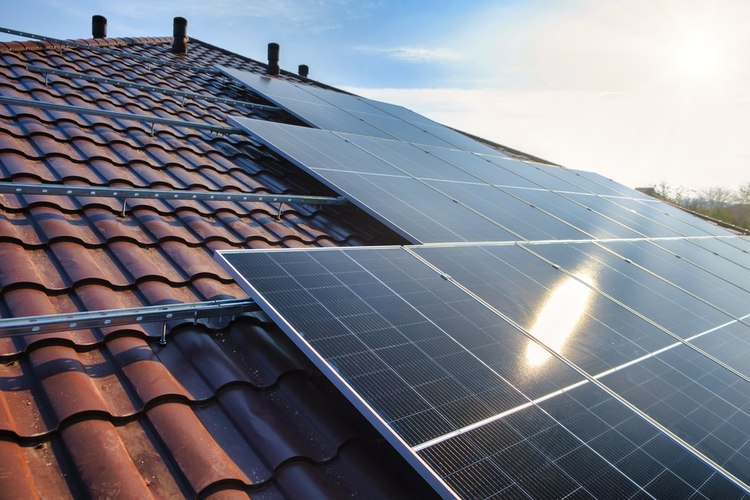Learn Solar Water Heater Basics: Installation, Maintenance, and Benefits Explained for Optimal Use
If you're looking to learn solar water heater systems, you're on the path to harnessing renewable energy for your household. These systems use solar collectors to convert sunlight into thermal energy, providing an eco-friendly solution for your hot water needs. Understanding how to properly install, maintain, and troubleshoot these heaters can not only maximize their efficiency but also lead to significant savings on energy bills.

What Is a Solar Water Heater and How Does It Work?
A solar water heater uses solar collectors, typically mounted on rooftops, to absorb sunlight and convert it into thermal energy. This energy heats water stored in insulated tanks for household or commercial use. The two main types are active systems, which use pumps to circulate water or heat-transfer fluids, and passive systems, which rely on natural convection. Active systems are more efficient in colder climates, while passive systems are simpler and require less maintenance. Both types significantly reduce reliance on conventional energy sources, making them attractive for environmentally conscious consumers seeking to lower utility expenses.
Solar Water Heater Installation: What to Expect
Installing a solar water heater involves several key steps. First, a professional assesses your roof’s orientation, angle, and structural integrity to determine optimal collector placement. South-facing roofs with minimal shading typically yield the best results. The installer mounts solar collectors, connects them to a storage tank, and integrates the system with existing plumbing. Installation complexity varies based on system type and household size. Active systems require electrical connections for pumps and controllers, while passive systems have fewer components. Proper installation ensures maximum efficiency and longevity. Hiring certified technicians familiar with local building codes and permits is essential to avoid complications and ensure warranty coverage.
Solar Water Heater Cost and Price Considerations
Understanding the financial investment required for solar water heating systems helps homeowners budget appropriately. Initial costs depend on system type, capacity, and installation complexity. Passive systems generally cost less upfront but may offer lower efficiency in certain climates. Active systems, while more expensive initially, often provide better performance and faster payback periods through energy savings. Additional factors influencing cost include tank size, collector quality, and local labor rates. Government incentives, tax credits, and rebates can significantly reduce net expenses, making solar water heaters more accessible. Evaluating long-term savings against upfront investment reveals the true economic value of these systems.
| System Type | Provider | Cost Estimation |
|---|---|---|
| Passive Thermosiphon | Generic Manufacturers | $2,000 - $4,000 |
| Active Direct Circulation | Rheem, Heliodyne | $4,000 - $7,000 |
| Active Indirect Circulation | SunEarth, Apricus | $5,000 - $9,000 |
| Batch Collector System | Local Installers | $1,500 - $3,500 |
Prices, rates, or cost estimates mentioned in this article are based on the latest available information but may change over time. Independent research is advised before making financial decisions.
Solar Water Heater Service and Maintenance Requirements
Regular maintenance ensures solar water heaters operate efficiently and last for decades. Annual inspections by qualified technicians identify potential issues before they escalate. Service tasks include checking collector glazing for cracks, inspecting mounting hardware for corrosion, testing pump functionality in active systems, and flushing tanks to remove sediment buildup. Homeowners should monitor system pressure gauges and temperature readings regularly. In freezing climates, antifreeze levels in indirect systems require periodic checks. Cleaning collectors to remove dust, pollen, and debris maintains optimal sunlight absorption. Proper maintenance reduces energy losses, prevents costly repairs, and extends system lifespan, maximizing return on investment over time.
Addressing Solar Water Heater Leaking Issues
Leaks in solar water heating systems can stem from various sources, including corroded pipes, faulty valve seals, cracked collector tubes, or loose fittings. Identifying leak locations early prevents water damage and system inefficiency. Common signs include reduced hot water output, visible water pooling near tanks or collectors, and unusual pressure drops. Homeowners should inspect connections, gaskets, and pressure relief valves regularly. Professional technicians use specialized tools to detect hidden leaks within closed-loop systems. Repairs may involve replacing worn components, tightening connections, or resealing joints. Addressing leaks promptly maintains system integrity and prevents secondary damage to roofing structures or interior spaces.
Benefits of Solar Water Heaters for Homeowners
Solar water heaters offer numerous advantages beyond cost savings. They reduce greenhouse gas emissions by decreasing reliance on fossil fuel-based heating. Systems operate silently without combustion, improving indoor air quality and eliminating carbon monoxide risks. Homes with solar water heaters often see increased property values, appealing to environmentally conscious buyers. These systems provide energy independence, shielding households from fluctuating utility rates. In sunny regions, solar water heaters can meet 70 to 90 percent of hot water needs annually. Even in cloudy climates, they supplement conventional heaters effectively. Durability is another benefit, with quality systems lasting 20 years or more with proper maintenance, delivering decades of reliable, renewable energy.
Conclusion
Solar water heaters represent a practical investment for homeowners seeking sustainable energy solutions and long-term cost reductions. Understanding installation processes, maintenance requirements, and potential challenges like leaking helps ensure optimal system performance. While upfront costs vary based on system type and installation complexity, available incentives and energy savings often justify the investment. Regular service extends system lifespan and maintains efficiency, protecting your investment for years to come. By choosing solar water heating technology, households contribute to environmental conservation while enjoying reliable hot water and reduced utility expenses.




